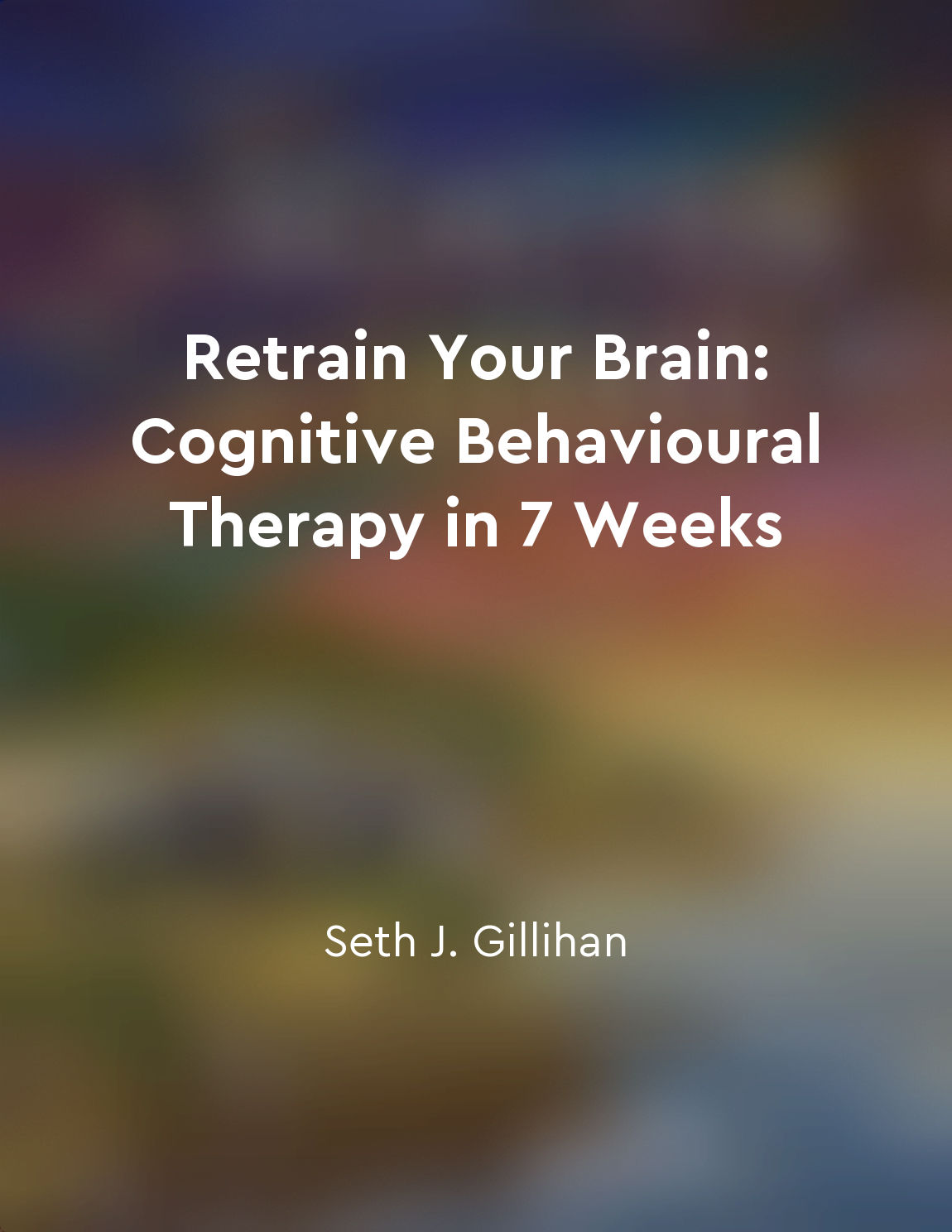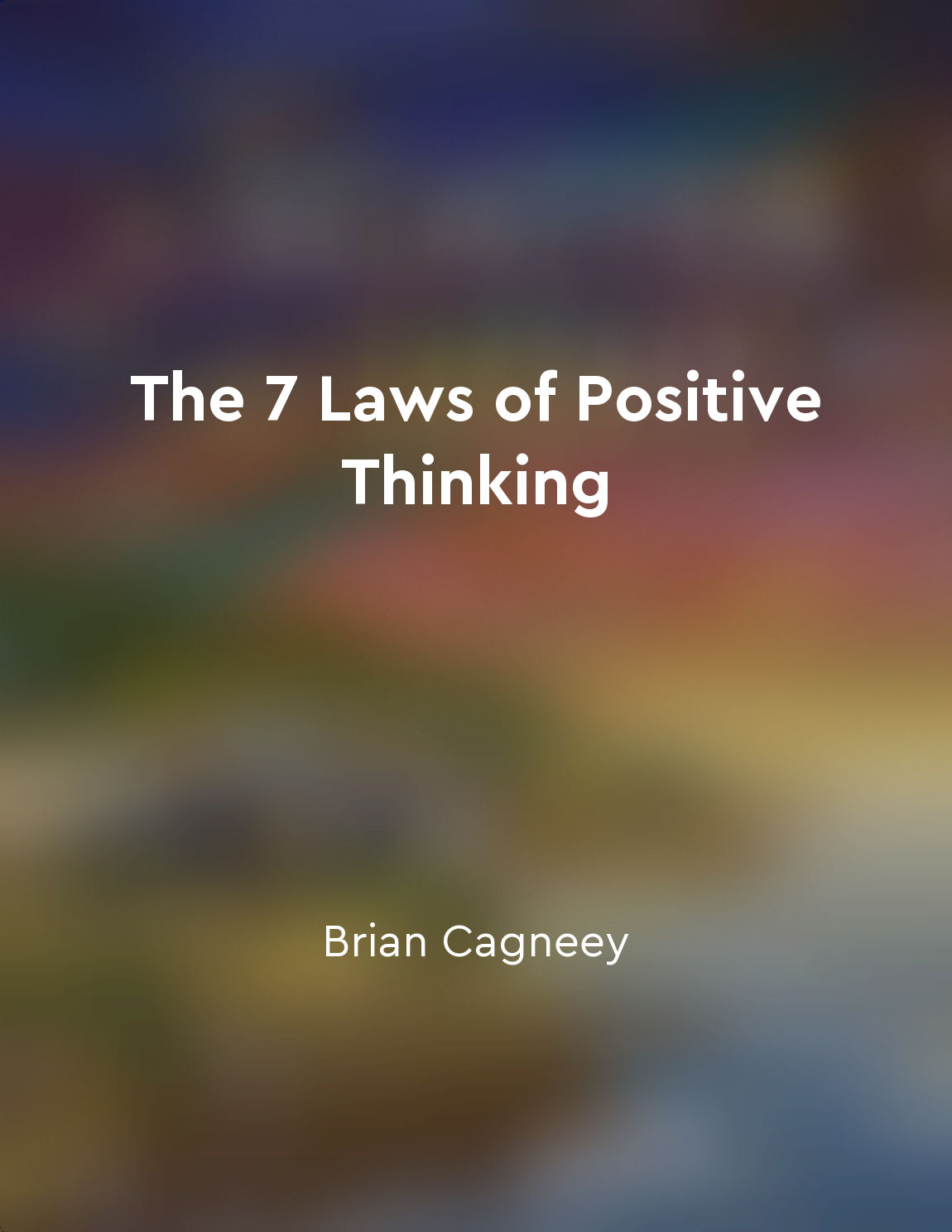Identify negative thoughts from "summary" of Mind Over Mood, Second Edition by Dennis Greenberger,Christine A. Padesky
Identifying negative thoughts is a crucial step in cognitive therapy. Negative thoughts are automatic and habitual, often occurring without our awareness. These thoughts are not always accurate reflections of reality, but they can greatly influence our emotions and behaviors. By becoming more aware of these negative thoughts, we can begin to challenge and change them. Negative thoughts can take many different forms, such as self-criticism, catastrophizing, or jumping to conclusions. These thoughts may be distorted or biased, leading to feelings of anxiety, sadness, or anger. It is important to pay attention to the content and patterns of our negative thoughts in order to understand how they are impacting our mood and behavior. To identify negative thoughts, it can be helpful to pay attention to your internal dialogue. Notice when you are feeli...Similar Posts
Avoidance only reinforces fear
When we avoid something that scares us, we send a powerful message to our brain: "This thing is dangerous. I need to stay away ...
Take calculated risks
Taking calculated risks is a concept that is often misunderstood. Many people think that taking risks means being reckless or i...

Finding purpose and meaning in life contributes to happiness
Finding purpose and meaning in life is a fundamental aspect of human existence. It is through this pursuit that individuals are...
Your beliefs create your reality
Your beliefs create your reality. Whatever you accept in your conscious mind will be impressed upon your subconscious mind. The...

Cultivating a sense of purpose and meaning in life
Finding a sense of purpose and meaning in life is like searching for a needle in a haystack. It can be overwhelming and exhaust...

Cultivating a positive mindset attracts positivity
Maintaining a positive mindset is like planting seeds in a garden. Just as seeds need water and sunlight to grow, our thoughts ...

Set realistic goals for yourself
When setting goals for yourself, it's important to be realistic. This means setting objectives that are actually attainable wit...

Trust the process and believe in yourself
One of the key principles to success in life is having faith in the process and having confidence in yourself. Trusting the pro...
Freedom entails ethical responsibility
Freedom does not mean acting without any constraints or consequences. Rather, freedom implies the ability to make choices based...
Seek opportunities for growth and learning
In our quest to become better versions of ourselves, it is essential to embrace the idea of seeking opportunities for growth an...
